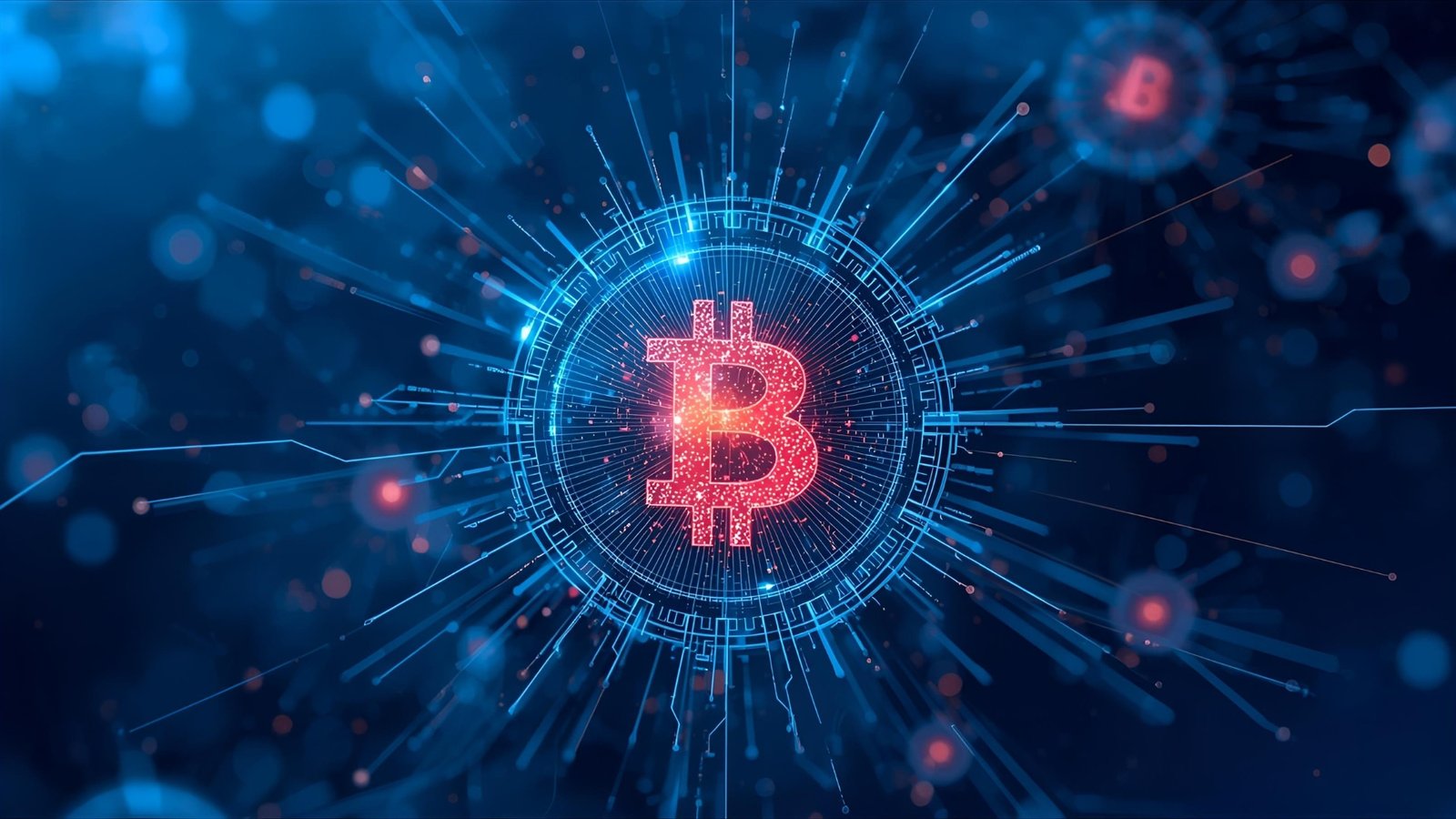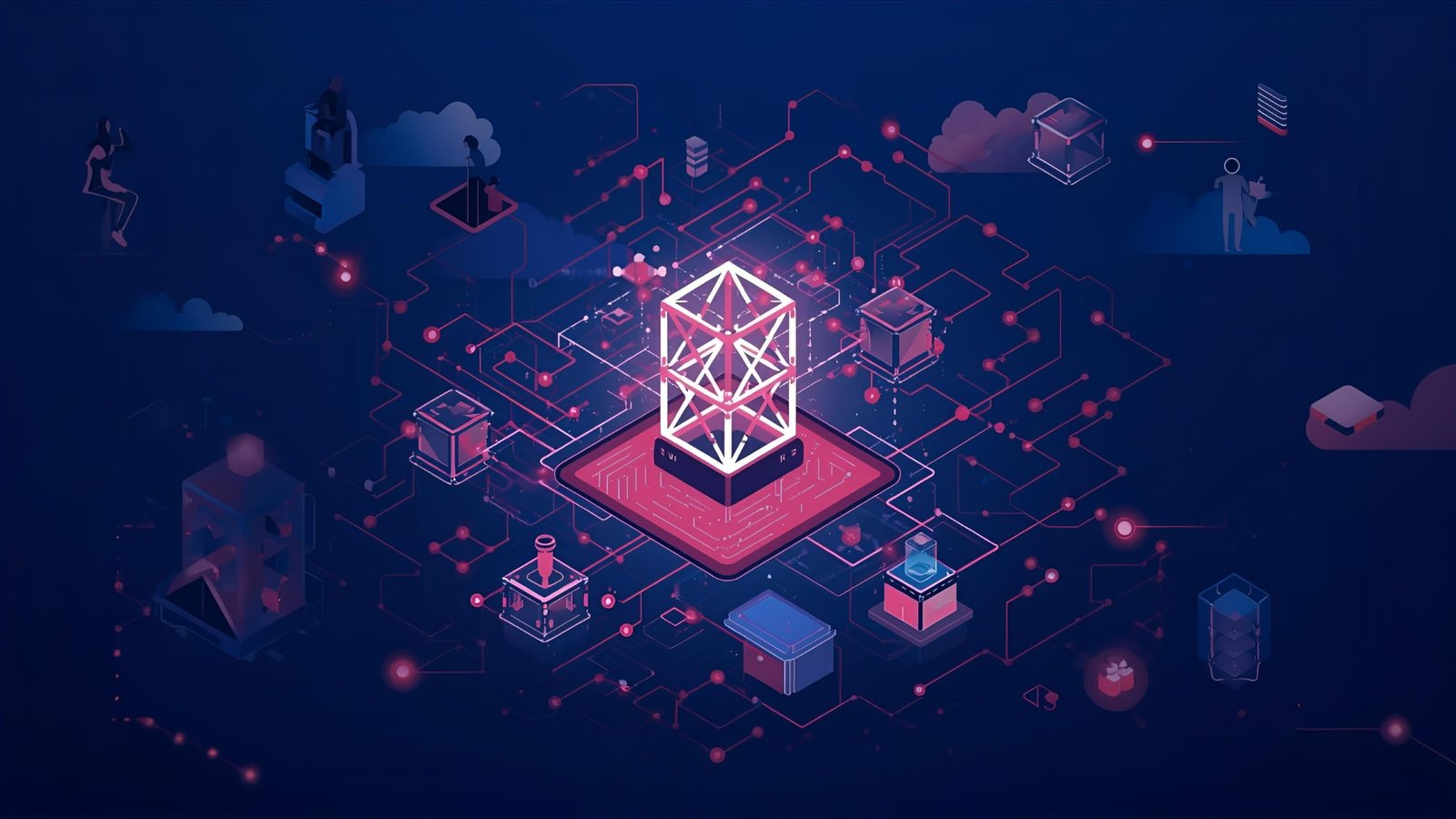In 2025, blockchain technology is no longer confined to speculative cryptocurrency markets—it has become an integral part of the global digital infrastructure. What started as a decentralized ledger powering Bitcoin has evolved into a transformative tool redefining industries like finance, healthcare, supply chain management, real estate, and energy. With the rise of Web3, smart contracts, and decentralized finance (DeFi), blockchain’s real-world applications are finally matching its early promises.
From improving transparency in logistics to securing medical records and even powering digital identity solutions, blockchain’s versatility is shaping how data, trust, and transactions flow in the modern world. This article explores the top real-world uses of blockchain in 2025, diving deep into its practical implementations that are driving the digital economy forward.
The Evolution of Blockchain: From Concept to Core Infrastructure
Blockchain’s journey began in 2Q008 with Satoshi Nakamoto’s whitepaper on Bitcoin, describing a decentralized, tamper-proof ledger system. Over the years, this technology has evolved from powering digital currencies to supporting multi-industry ecosystems based on trustless transactions and immutable records.
In 2025, blockchain networks such as Ethereum, Solana, Polygon, and Avalanche have achieved scalability and interoperability, enabling developers and enterprises to build complex decentralized systems. Governments, corporations, and startups alike are adopting blockchain-based solutions for identity verification, cross-border payments, supply chain transparency, and smart city initiatives.
The key appeal lies in blockchain’s decentralization, transparency, and security—qualities that make it superior to traditional centralized databases.
Blockchain in Finance: The Foundation of the New Digital Economy

Decentralized Finance (DeFi) and Banking Transformation
One of the most mature real-world uses of blockchain is in the financial sector. DeFi platforms have redefined banking by allowing users to borrow, lend, and trade assets without intermediaries. By leveraging smart contracts, DeFi automates transactions securely and transparently, minimizing fraud and costs.
In 2025, traditional banks are integrating blockchain into their infrastructure to facilitate cross-border settlements, instant remittances, and tokenized assets. Financial institutions like JPMorgan, HSBC, and Citibank are deploying blockchain-based payment rails to enhance efficiency.
Blockchain also supports Central Bank Digital Currencies (CBDCs), allowing governments to issue programmable digital money. This marks a significant step toward modernizing the global financial ecosystem, blending the efficiency of crypto with state-backed stability.
Tokenization of Assets
Another transformative use case in finance is asset tokenization—the process of converting physical or digital assets into blockchain-based tokens. In 2025, everything from real estate to art, stocks, and carbon credits is being tokenized.
This not only enhances liquidity but also democratizes investment opportunities by allowing fractional ownership. For instance, investors can own a fraction of a luxury building or artwork through blockchain tokens, lowering entry barriers and creating new financial ecosystems.
Blockchain in Supply Chain Management: Ensuring Transparency and Trust
The supply chain industry has always struggled with opacity, fraud, and inefficiency. Blockchain solves these challenges by providing a transparent, tamper-proof ledger where each step of the product journey—from raw materials to delivery—is recorded and verifiable. In 2025, leading logistics and retail companies use blockchain to ensure traceability and authenticity. Giants like Walmart, IBM, and Maersk have implemented blockchain-based systems that allow real-time tracking of goods.
For instance, in the food industry, blockchain helps trace products from farm to table, ensuring food safety and reducing waste. In pharmaceuticals, blockchain verifies the origin and integrity of drugs, preventing counterfeiting and ensuring patient safety. This increased transparency builds trust among consumers, regulators, and businesses, making blockchain an indispensable part of global trade.
Blockchain in Healthcare: Securing Data and Empowering Patients
The healthcare industry faces challenges like data breaches, identity theft, and fragmented medical records. Blockchain provides a powerful solution through decentralized medical data systems that ensure security, privacy, and interoperability.
In 2025, blockchain-based electronic health records (EHRs) are revolutionizing patient care. Patients now control their data and can securely share it with healthcare providers or insurance companies. This enhances diagnostic accuracy and enables seamless communication between hospitals, laboratories, and specialists.
Furthermore, blockchain in pharmaceutical research ensures the integrity of clinical trial data, reducing fraud and improving transparency. Projects like Medicalchain and Solve.Care are leading the movement toward patient-centric healthcare ecosystems powered by blockchain.
Blockchain also plays a vital role in tracking vaccine distribution, medical supply chains, and health insurance claims, ensuring every transaction is traceable and tamper-proof.
Blockchain in Real Estate: Revolutionizing Property Ownership
The real estate sector is traditionally slow, paper-intensive, and prone to fraud. Blockchain transforms property transactions by enabling smart contracts, tokenization, and digital land registries.By recording property deeds and ownership details on a blockchain, the process becomes transparent, efficient, and fraud-resistant. Buyers and sellers can complete transactions securely without intermediaries.
In 2025, countries like Sweden, Dubai, and Singapore will have integrated blockchain-based property systems that streamline land registration and reduce bureaucracy. Additionally, real estate tokenization allows investors to buy fractional shares of high-value properties, creating liquidity in what was once an illiquid market. Platforms like Propy and RealT are leading innovations that make real estate investing more accessible globally.
Blockchain in Energy: Powering the Green Economy
Sustainability has become a global priority, and blockchain plays a crucial role in managing the energy transition. Decentralized energy grids built on blockchain allow households and businesses to trade renewable energy directly, without relying on large utilities.In 2025, blockchain-based energy marketplaces enable peer-to-peer (P2P) trading of solar and wind energy, rewarding producers and promoting sustainability.
Blockchain also tracks carbon emissions, renewable energy certificates, and carbon credit trading, ensuring authenticity and accountability.Projects like Power Ledger and Energy Web Foundation have already demonstrated how blockchain in energy can make green power systems more efficient, transparent, and community-driven.
Blockchain in Government and Public Services
Governments worldwide are embracing blockchain for identity management, voting systems, and public recordkeeping. The technology provides a secure, auditable, and transparent framework for citizen services.In 2025, countries like Estonia, South Korea, and United Arab Emirates have implemented blockchain-based digital identity systems
That empower citizens to control access to their personal information.Similarly, blockchain-powered voting systems enhance electoral transparency, reducing fraud and improving trust in democratic processes. By ensuring data integrity, blockchain helps governments cut costs, streamline bureaucracy, and improve efficiency in public administration.
Blockchain in Entertainment and Media
The entertainment industry has long battled piracy, copyright infringement, and unfair royalty distribution. Blockchain is solving these issues by offering transparent content ownership and direct-to-fan monetization models. Artists can now tokenize their work as non-fungible tokens (NFTs), ensuring authenticity and allowing creators to earn royalties automatically through smart contracts.
In 2025, blockchain platforms like Audius, Royal, and Mogul Productions are redefining how musicians, filmmakers, and digital creators distribute and monetize their content. This new creator economy, powered by blockchain, eliminates intermediaries and gives artists greater control over their revenue.
Blockchain in Education: Verifying Credentials and Academic Records
Educational institutions are adopting blockchain to combat degree fraud and improve the verification of academic credentials. Blockchain-based certificates allow students, employers, and universities to verify qualifications instantly and securely. In 2025, many universities will issue digital diplomas and transcripts on blockchain, eliminating paperwork and ensuring authenticity.
This innovation supports lifelong learning, global mobility, and trust in academic institutions. Moreover, blockchain-powered learning management systems (LMS) reward students with digital badges and NFTs that represent skills and achievements, making education more transparent and verifiable.
Blockchain and the Future of Web3
The Web3 revolution—a decentralized internet owned by its users—is built entirely on blockchain. In 2025, decentralized applications (dApps), decentralized autonomous organizations (DAOs), and NFT ecosystems form the foundation of Web3.Blockchain ensures data ownership, privacy, and interoperability, allowing users to control their online identity and assets.
Web3’s decentralized nature eliminates data monopolies, empowering creators, developers, and users alike. This shift represents more than a technological. upgrade—it’s a philosophical transformation of the internet from centralized control to community-driven governance.
Challenges and Limitations of Blockchain Adoption

Despite its immense potential, blockchain faces challenges in scalability, regulatory compliance, and energy efficiency. Many public blockchains still struggle with transaction speed and network congestion. Although newer consensus mechanisms like Proof-of-Stake (PoS) have been introduced. Layer-2 scaling solutions are addressing these issues. Regulatory uncertainty remains another hurdle, as governments work to balance innovation with consumer protection. However, as frameworks mature and interoperability improves, blockchain is poised to become the backbone of the digital-first global economy.
See More: How to Invest in Blockchain Technology 2025 Complete Beginner’s Guide
Conclusion
In 2025, blockchain technology stands as one of the most transformative innovations of the digital era. From finance and healthcare to energy, real estate, and education, blockchain is driving efficiency, transparency, and trust across industries. What began as a foundation for cryptocurrencies has evolved into a universal infrastructure for secure, decentralized systems.
As blockchain continues to mature, its real-world applications will redefine how societies function, enabling a future built on trustless collaboration and digital freedom. The next decade will likely see blockchain seamlessly integrated into everyday life—powering everything from online identities to government systems—creating a more transparent and equitable digital economy for all.
FAQs
Q: What are the top real-world applications of blockchain in 2025?
The most prominent uses include DeFi, supply chain tracking, healthcare data management, real estate tokenization, and digital identity systems.
Q: How does blockchain improve supply chain transparency?
Blockchain records every step in a product’s journey on an immutable ledger, ensuring traceability, reducing fraud, and enhancing consumer trust.
Q: Can blockchain help secure medical data?
Yes, blockchain allows patients to control their health data and share it securely, ensuring privacy and preventing unauthorized access.
Q: What role does blockchain play in renewable energy?
Blockchain enables peer-to-peer energy trading, tracks renewable certificates, and supports carbon credit systems for sustainable energy management.
Q: Is blockchain technology sustainable?
With the shift toward energy-efficient consensus mechanisms like Proof-of-Stake and green blockchain initiatives, the technology is becoming increasingly sustainable and scalable.


















